Modelling Methods to decrease HIV infections within Australia
—An modelling experiment
As part of our core subjects at UNSW, we needed to investigate a problem and then model different solutions to
said
problem. I had recently been doing some research into PrEP for personal use and found myself wondering why don't
we just
fully subsidise it? The Pharmaceutical Benefits Scheme already covers something like 98% of the cost, why not go
the
rest of the way. This lead me down the path of creating the model and discovering the complexities involved in
HIV
transmission even without factoring in PrEP or other forms of protection.
Hit the buttons below to have a look through, and have a play with my model
· the model ·
· The Graphs ·
Human immunodeficiency virus (HIV) is a disease that we have no cure for as of yet. Without treatment, a person with HIV will eventually develop acquired immunodeficiency syndrome (AIDS) and again without treatment, they’ll typically survive three years. In the past, people with HIV and AIDS have been highly stigmatised in our society, with a lack of general understanding of how HIV is transmitted and treated. With the demonification of these people who were infected with the disease stalling progress on treatment for many years. With lasting cultural touchstones such as the Australian Grim Reaper AIDS Campaign (1987), there is a risk that the public’s sense of the state of treatment could be suck in the eighties, leaving a false perception about the state of treatment for persons with HIV or AIDS.
· The Paper ·
Problem Outline:
The Question:
Why this Question?
State of the Art:
Proposed Approach:
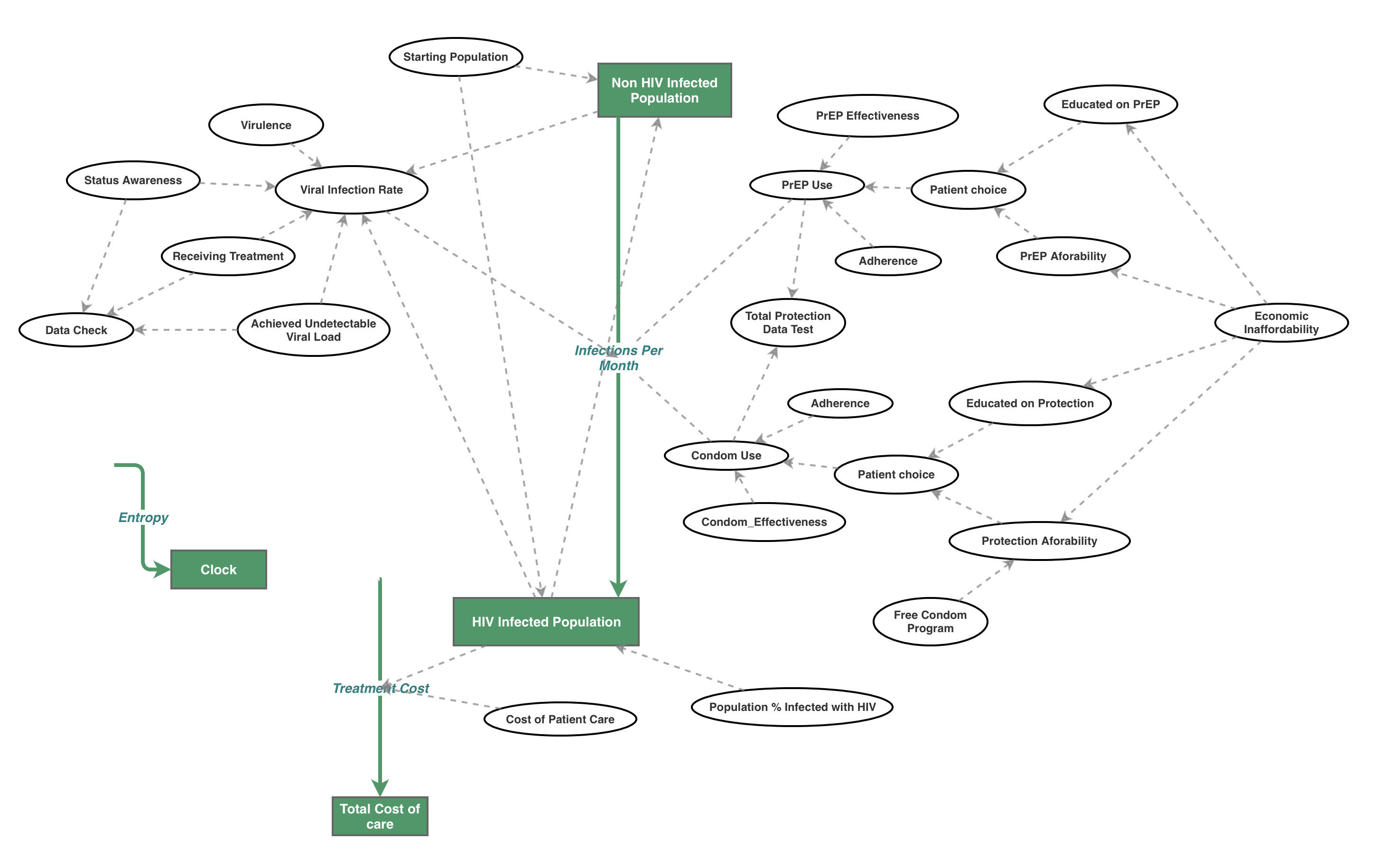
Model Constructed with Insight Maker
Discussion:
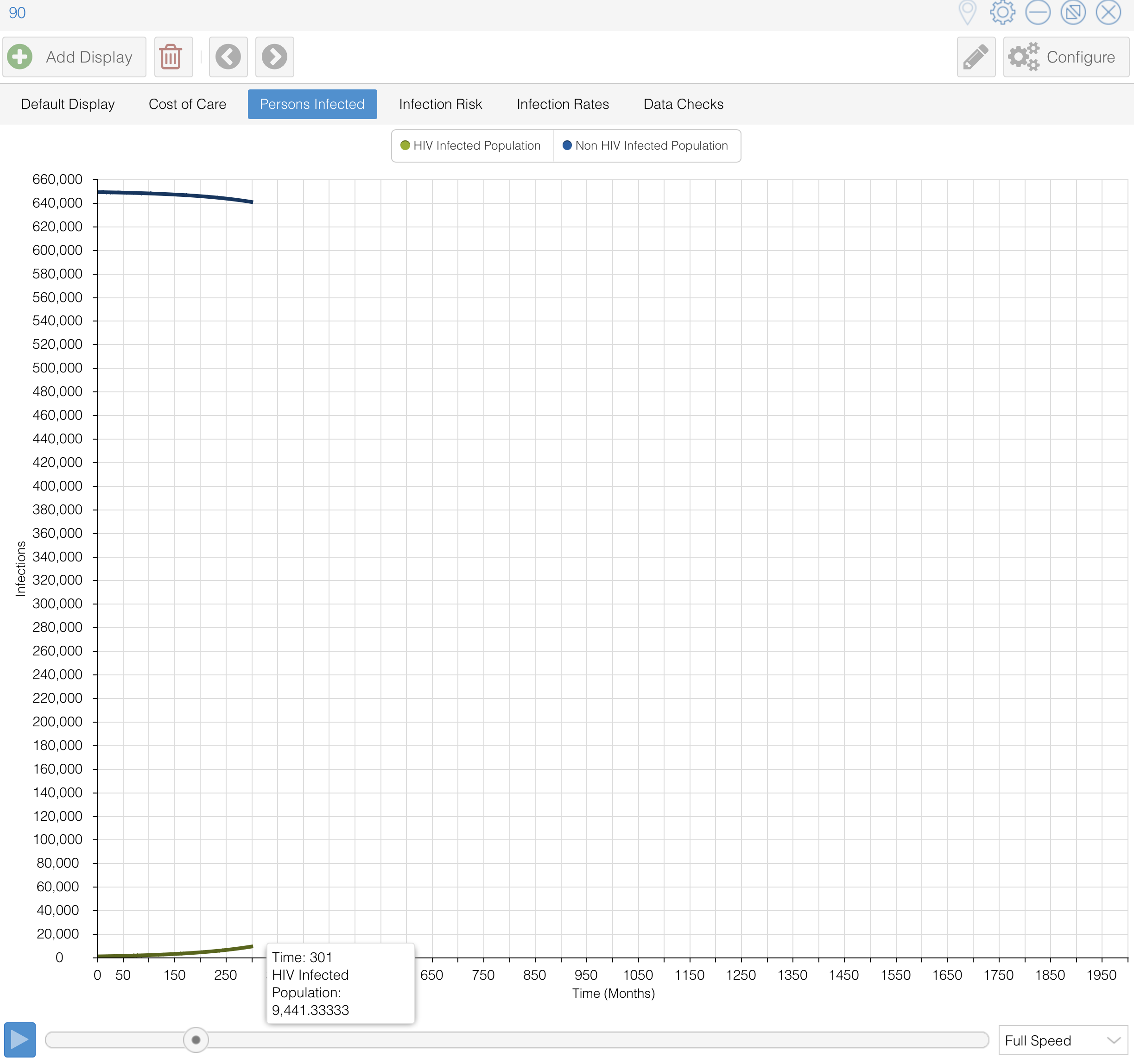
Persons infected by month 300 at 10% Inaffordability

Persons infected by month 450 at 10% Inaffordability

Persons infected by month 750 at 90% Inaffordability
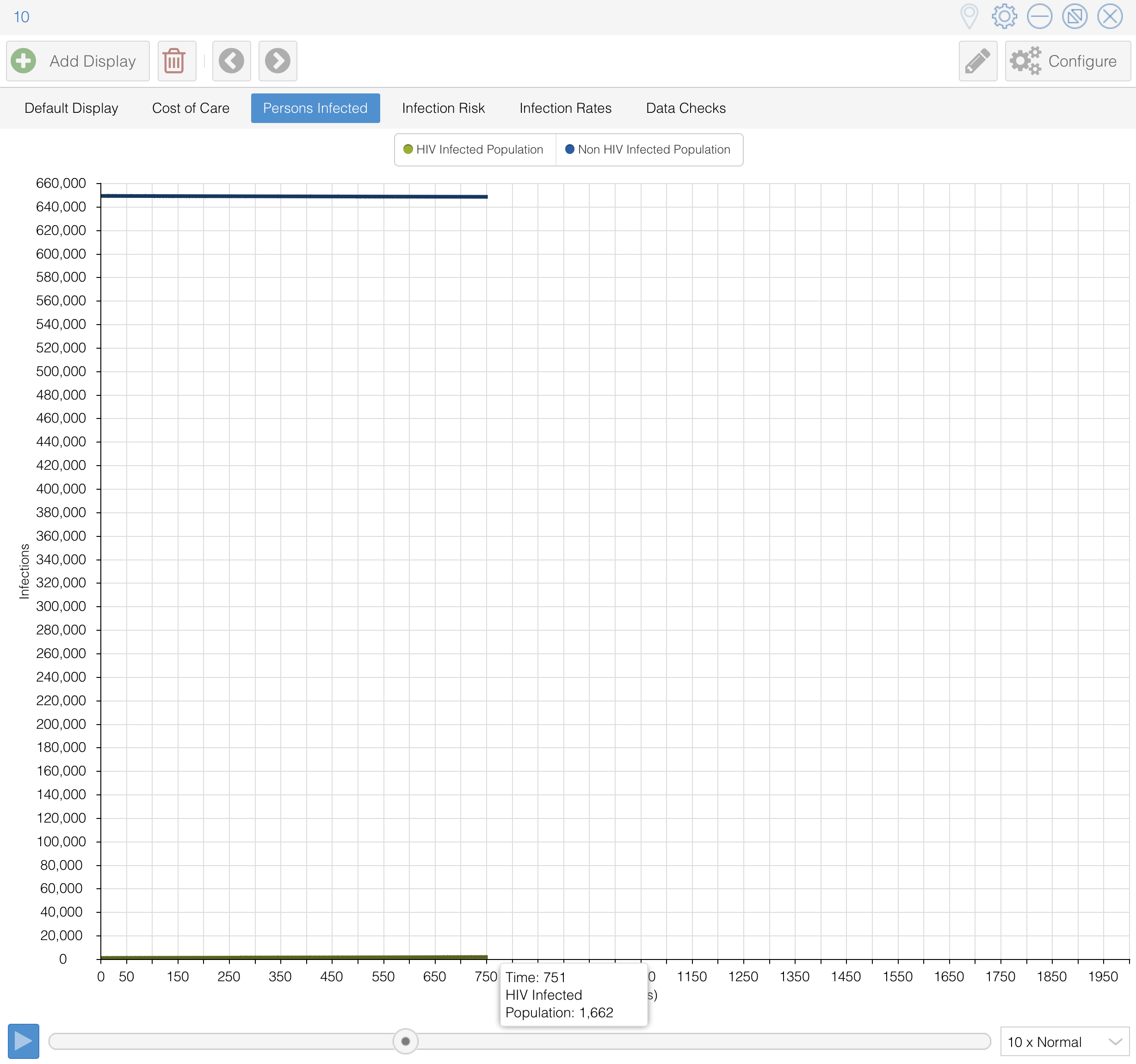
Persons infected by month 750 at 10% Inaffordability
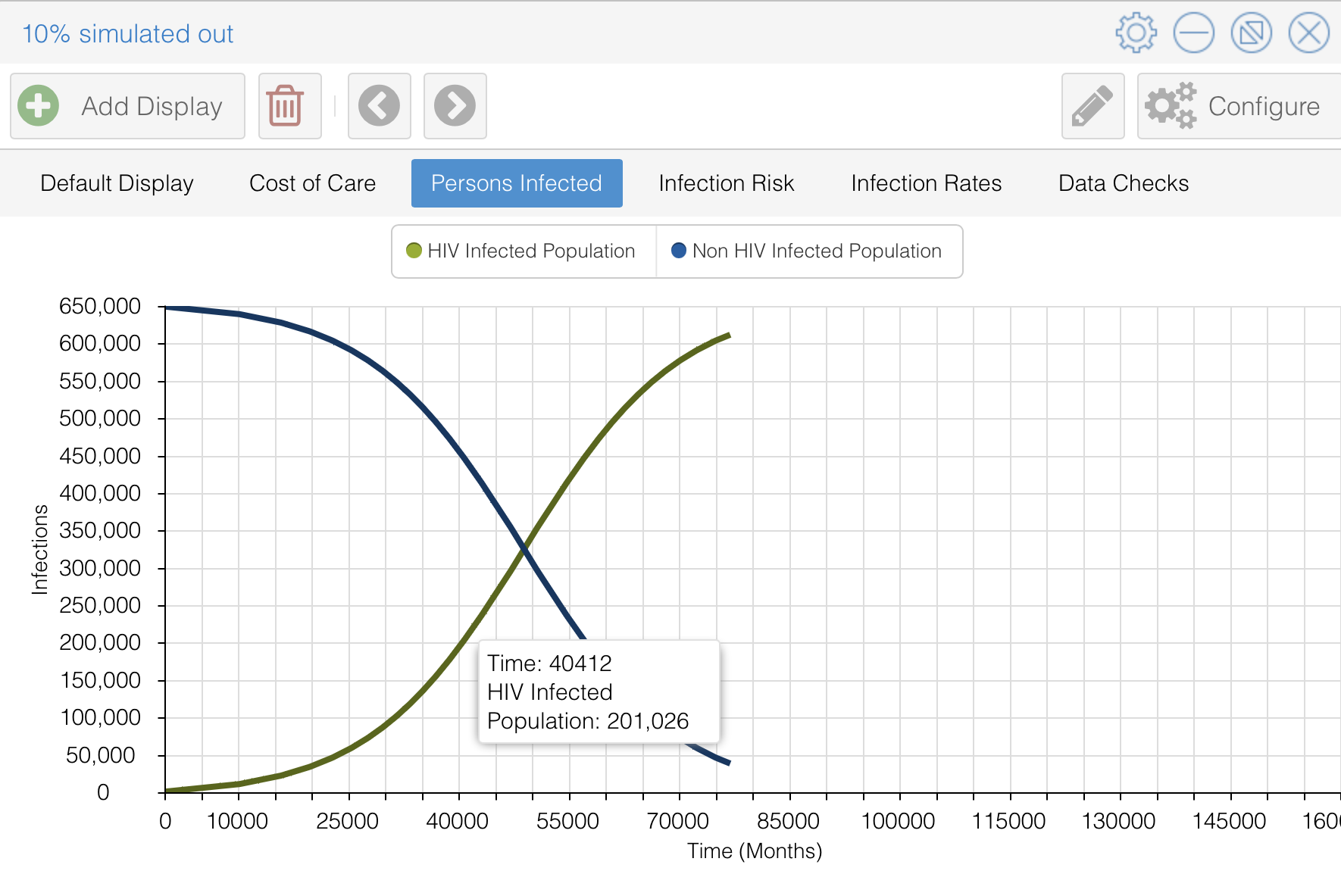
10% Inaffordability simmulated out to over 70,00 months
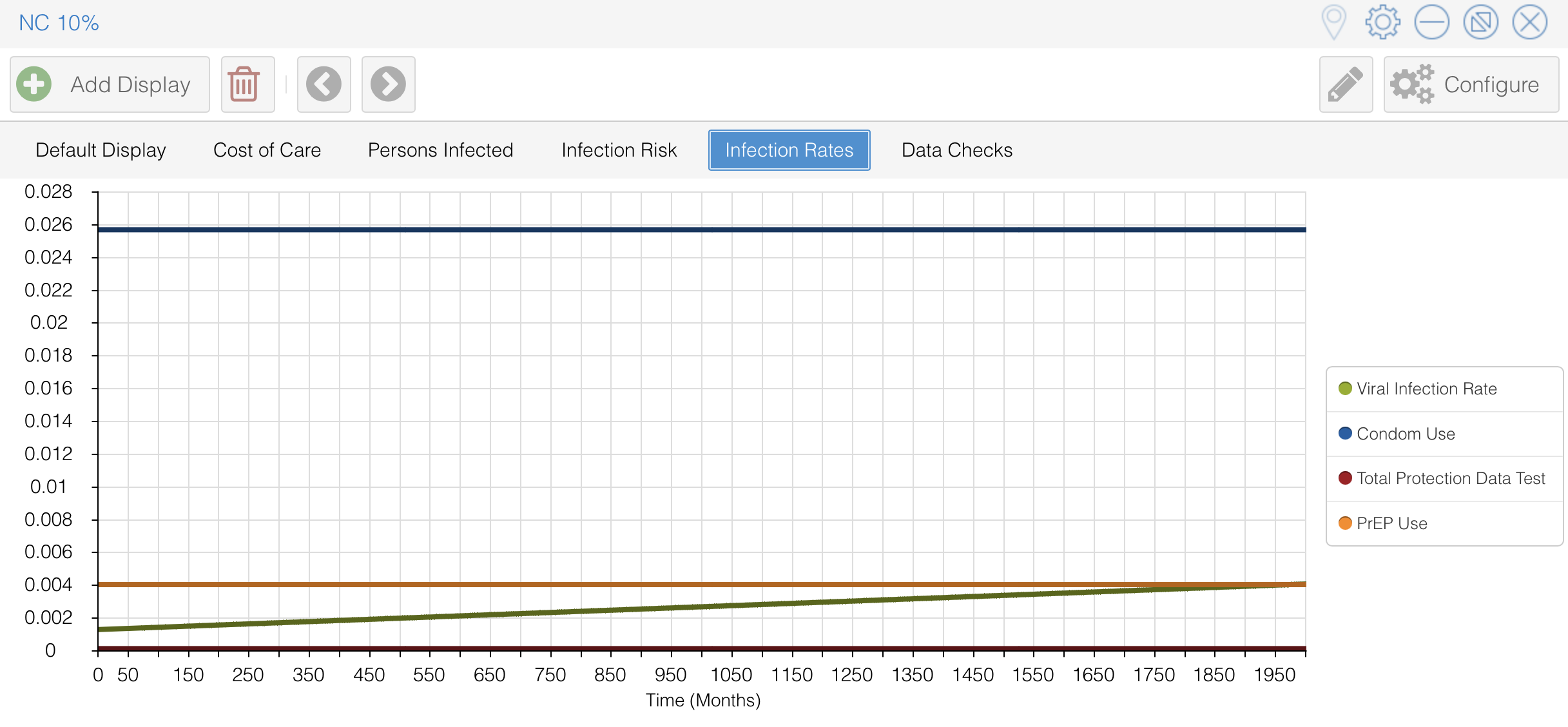
Rate of infection with 10% Inaffordability
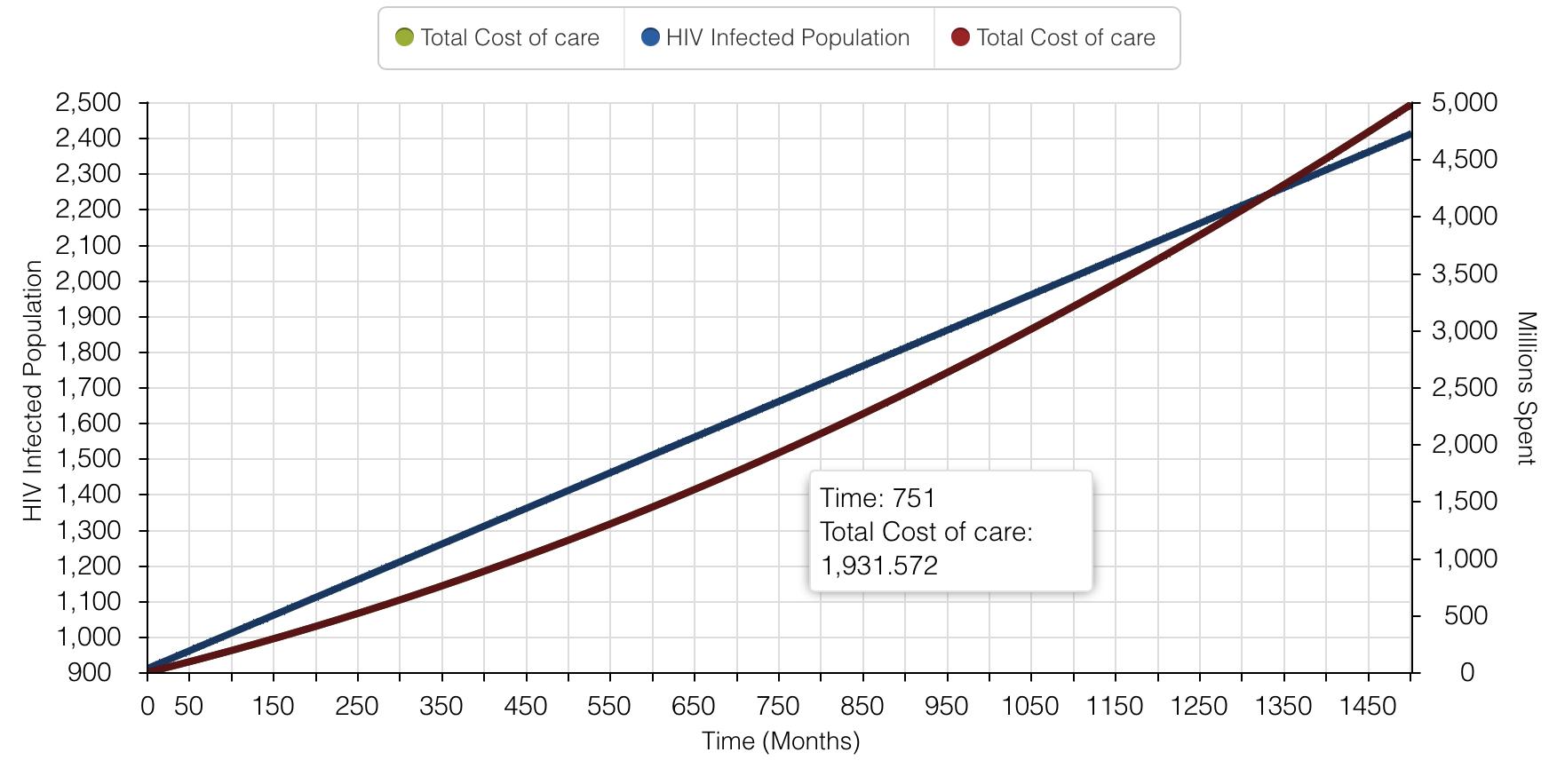
Cost of Care at 750 months with 10% Inaffordability
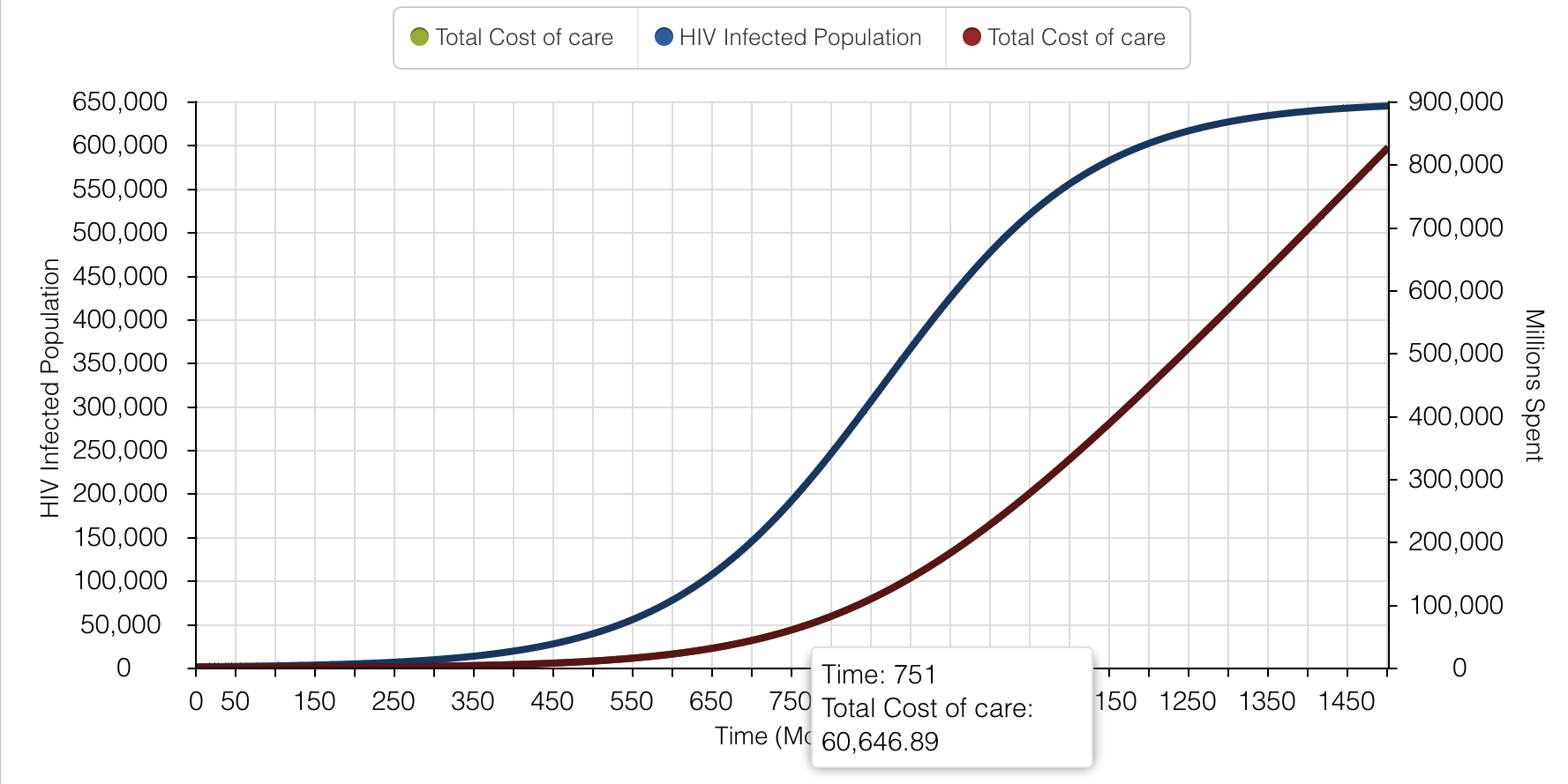
Cost of Care at 750 months with 90% Inaffordability
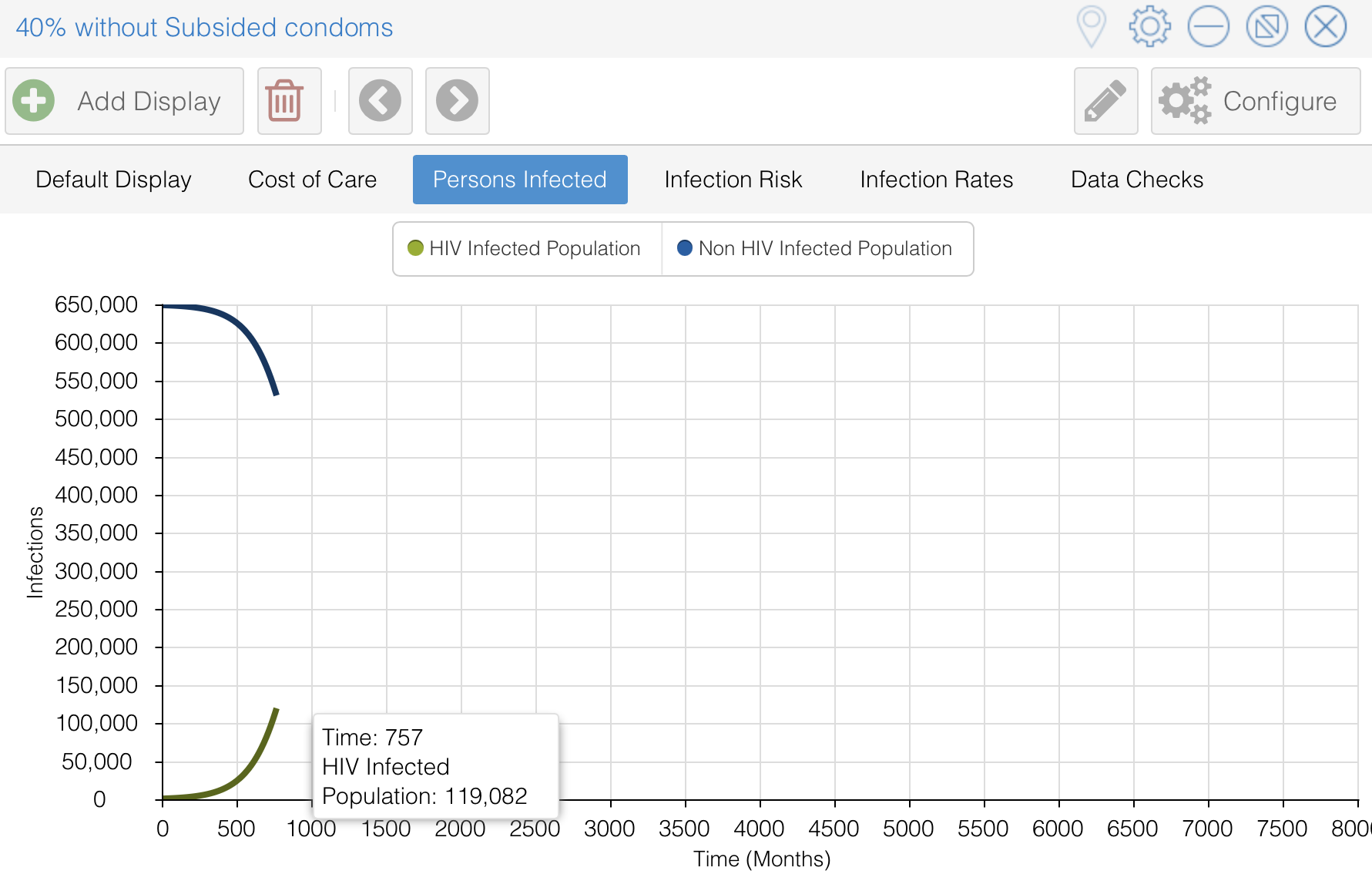
Population with 40% Inaffordability at 750 Months
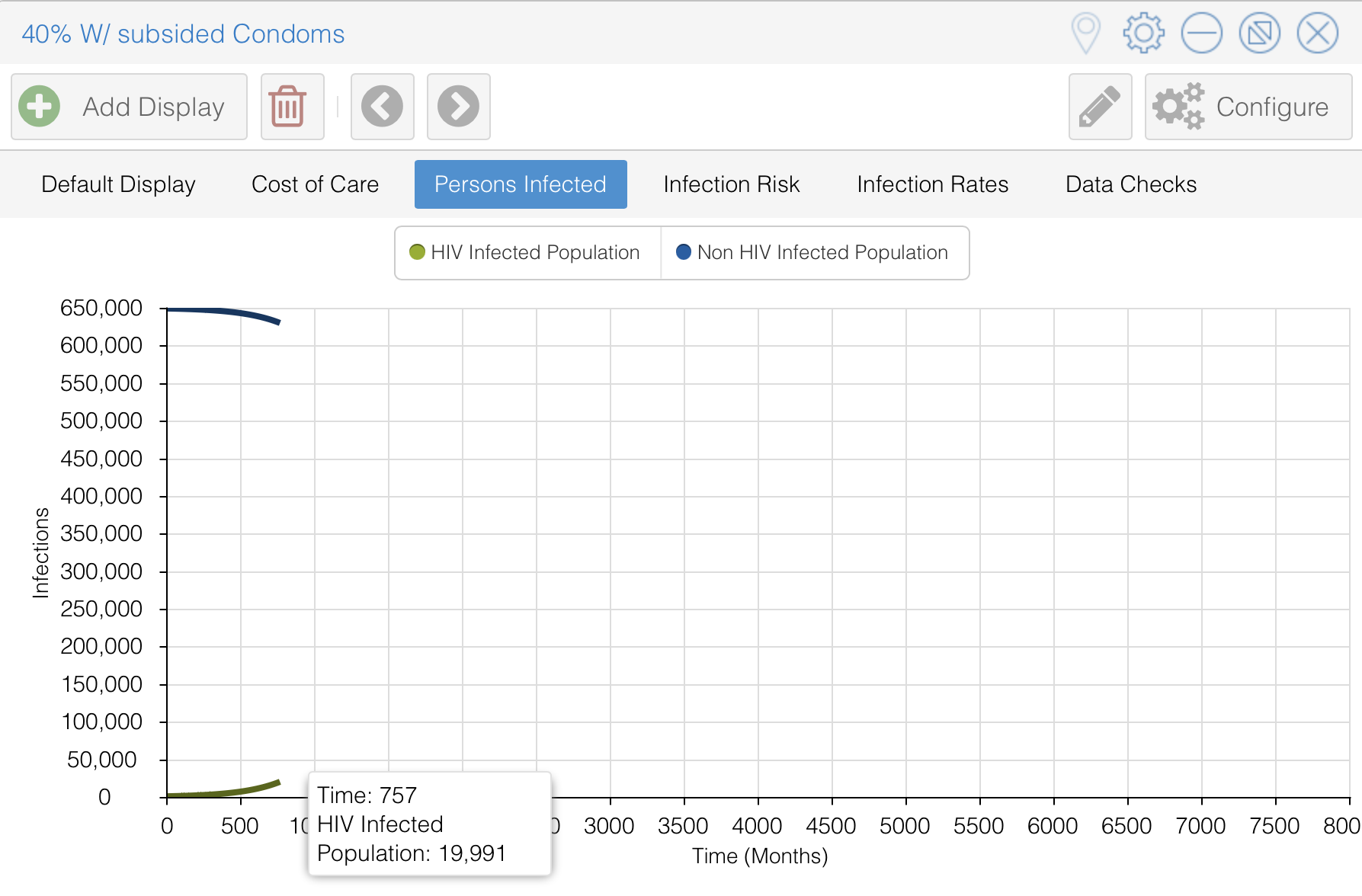
Population with 40% Inaffordability at 750 Months with subsided Condoms
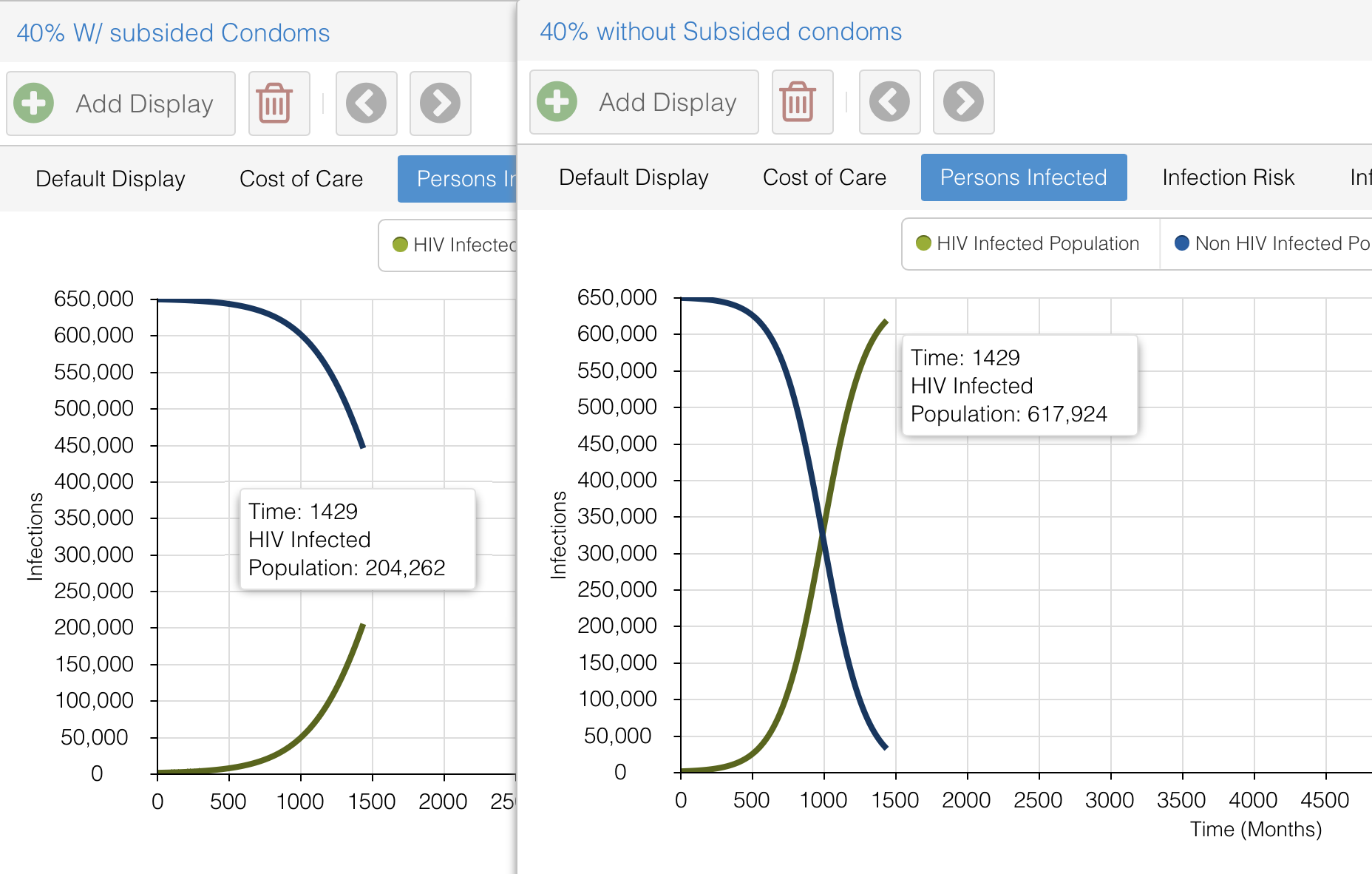
Comparing 40% Inaffordability at 1429 Months with and without subsided Condoms
Conclusion:
Refences: